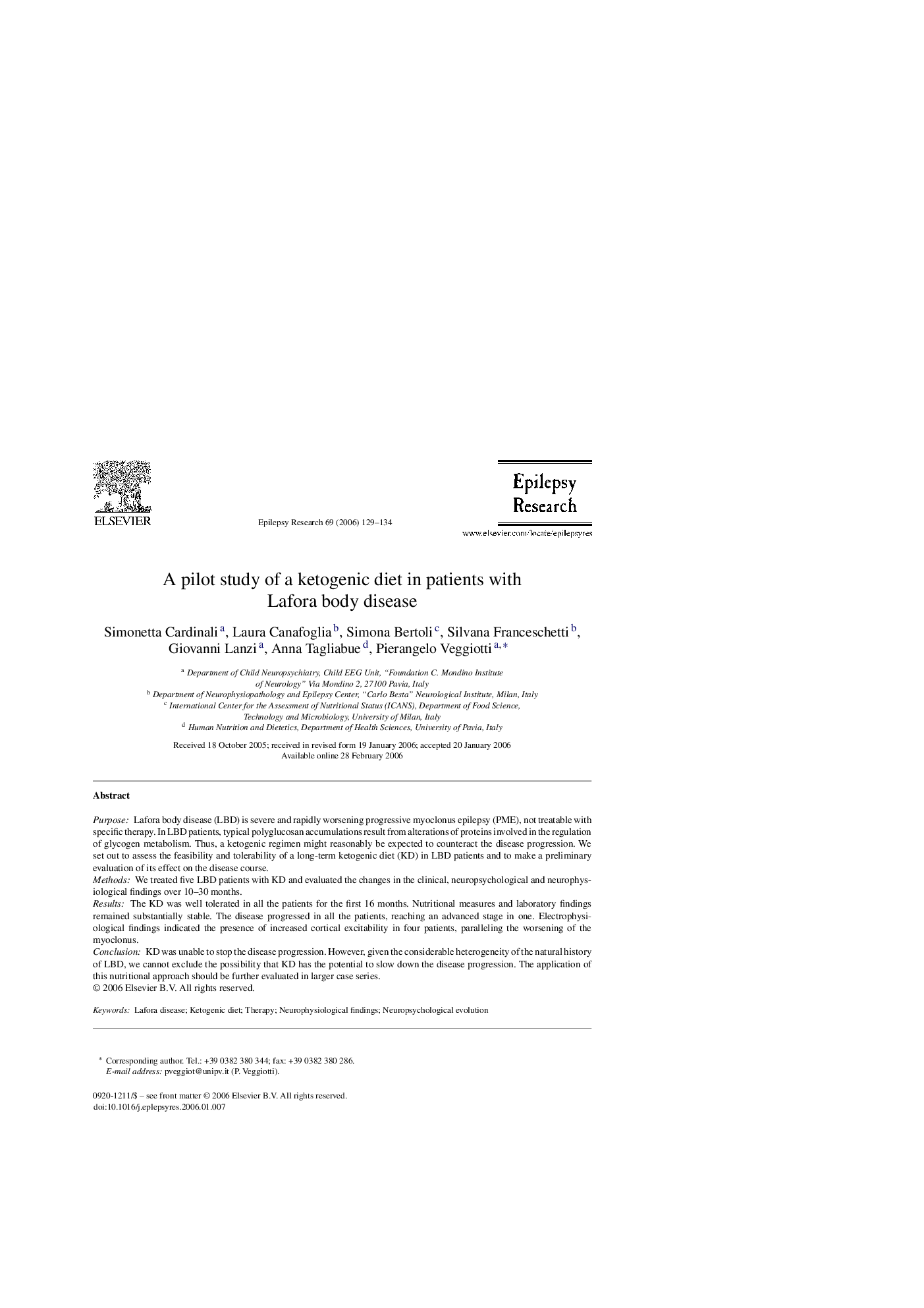| Article ID | Journal | Published Year | Pages | File Type |
|---|---|---|---|---|
| 3053399 | Epilepsy Research | 2006 | 6 Pages |
PurposeLafora body disease (LBD) is severe and rapidly worsening progressive myoclonus epilepsy (PME), not treatable with specific therapy. In LBD patients, typical polyglucosan accumulations result from alterations of proteins involved in the regulation of glycogen metabolism. Thus, a ketogenic regimen might reasonably be expected to counteract the disease progression. We set out to assess the feasibility and tolerability of a long-term ketogenic diet (KD) in LBD patients and to make a preliminary evaluation of its effect on the disease course.MethodsWe treated five LBD patients with KD and evaluated the changes in the clinical, neuropsychological and neurophysiological findings over 10–30 months.ResultsThe KD was well tolerated in all the patients for the first 16 months. Nutritional measures and laboratory findings remained substantially stable. The disease progressed in all the patients, reaching an advanced stage in one. Electrophysiological findings indicated the presence of increased cortical excitability in four patients, paralleling the worsening of the myoclonus.ConclusionKD was unable to stop the disease progression. However, given the considerable heterogeneity of the natural history of LBD, we cannot exclude the possibility that KD has the potential to slow down the disease progression. The application of this nutritional approach should be further evaluated in larger case series.
